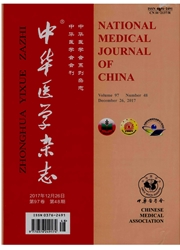

 中文摘要:
中文摘要:
目的分析丙型肝炎病毒抗体(HCV—Ab)阳性的血液病患者的临床特征。方法回顾性分析2010年10月至2015年10月85例河南省肿瘤医院血液科HCV.Ab阳性的血液病患者的临床特点、实验室检查、治疗及随访信息。结果HCV—Ab阳性率为1.2%,明显高于全国一般人群(0.4%)(P〈0.001)。25例HCV—Ab新发阳性的患者,15例(60.0%)患者丙氨酸转氨酶(ALT)出现升高,14例(56.0%)患者天冬氨酸转氨酶(AST)同步升高。85例HCV.Ab阳性的患者中,13例(15.3%)患者在化疗或造血干细胞移植治疗期间发生HCV再激活,并伴发不同程度肝功能损伤。结论血液病患者HCV感染及再激活发生率高,且多伴发肝功能损伤。化疗和移植可能是HCV再激活的危险因素。
 英文摘要:
英文摘要:
Objective To observe the biological characteristics of patients with hematological diseases and hepatitis C antibodies positive and to investigate features of HCV infection and reactivation. Methods A total of 85 patients with seropositive HCV at the hematology ward in Henan Cancer Hospital between October 2010 and October 2015 were analyzed. The clinical characteristics and laboratory data were retrospectively reviewed. Original disease treatment information was obtained from the medical records. Results The positive rate of HCV-Ab was 1.2%, which was significantly higher than that of the general population( 1.2% vs 0. 4% ,P 〈 0. 001 ). Of the 25 patients who showed anti-HCV seroconversion during the period of treatment or follow-up, serum ALT level was elevated in 15 patients (60. 0% )and AST level got synchronous increase in 14 patients (56. 0% ). Of the 85 patients with positive HCV-Ab, 13 ( 15. 3% ) patients suffered from HCV reactivation with hepatic injury in varying degrees after chemotherapy or HSCT. Conclusions Patients with hematological diseases have high incidence of HCV infection and reactivation, and most of them have hepatic injury. Chemotherapy and HSCT are important risk factors for HCV reactivation.
 同期刊论文项目
同期刊论文项目
 同项目期刊论文
同项目期刊论文
 Treatment with cyclophosphamide, vindesine, cytarabine, dexamethasone, and bleomycin in patients wit
Treatment with cyclophosphamide, vindesine, cytarabine, dexamethasone, and bleomycin in patients wit 期刊信息
期刊信息
